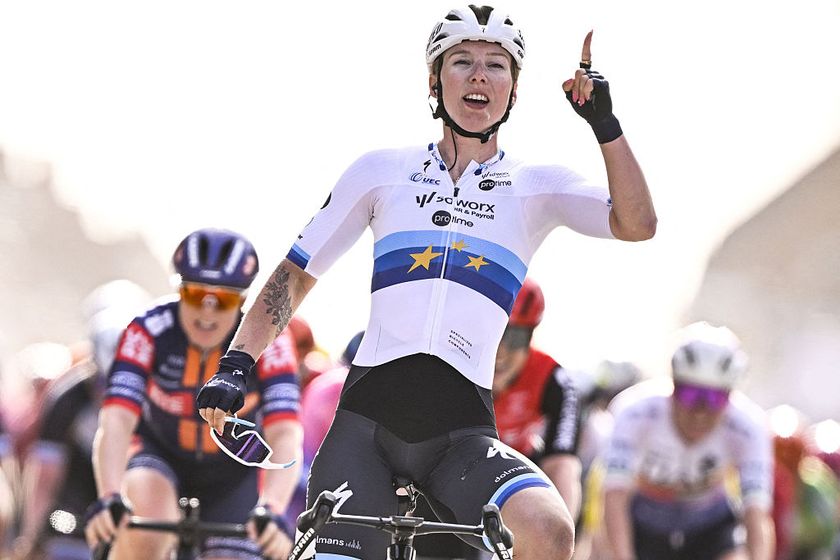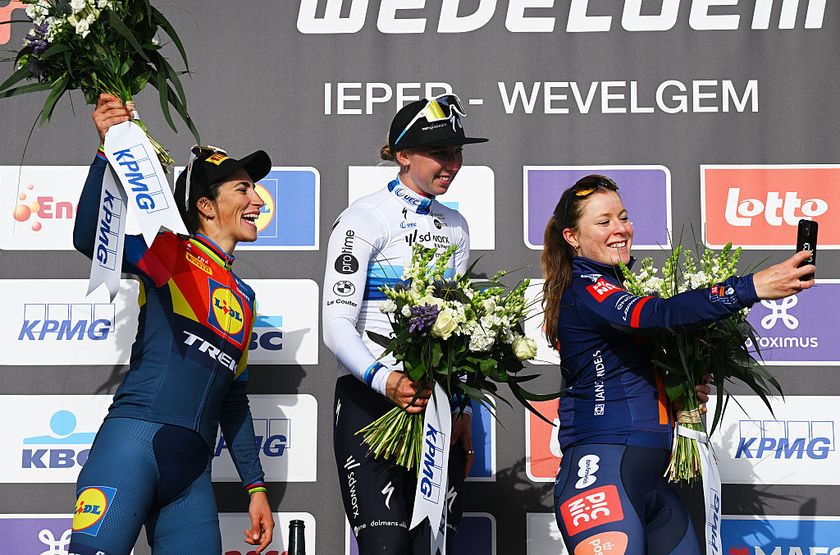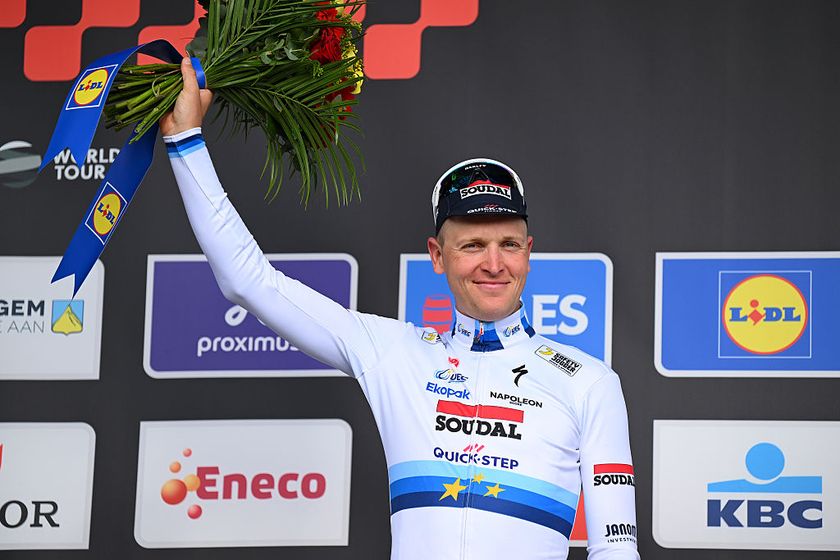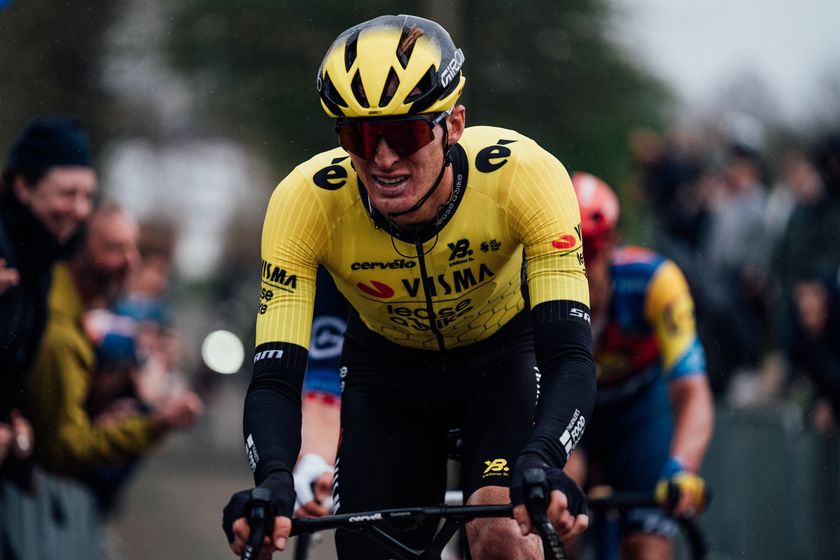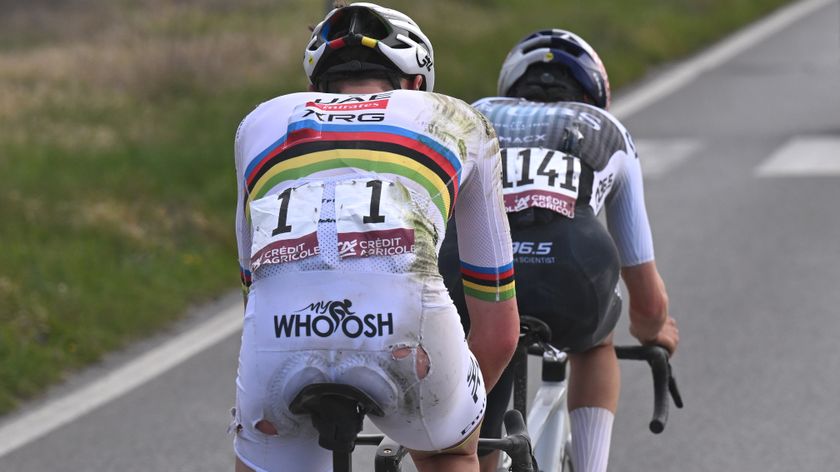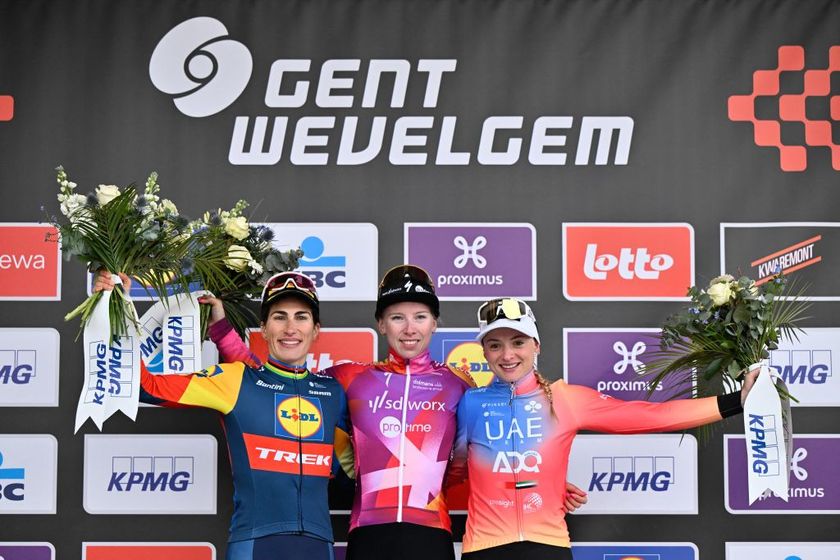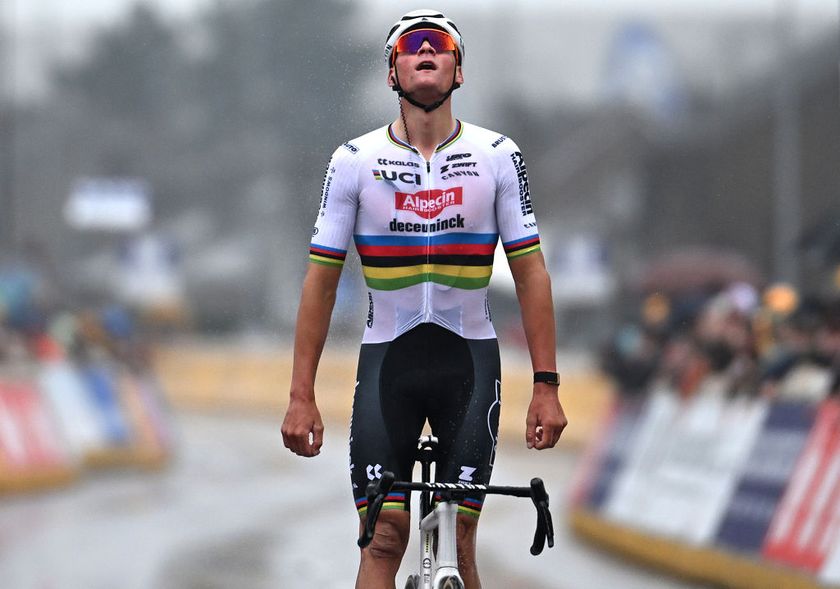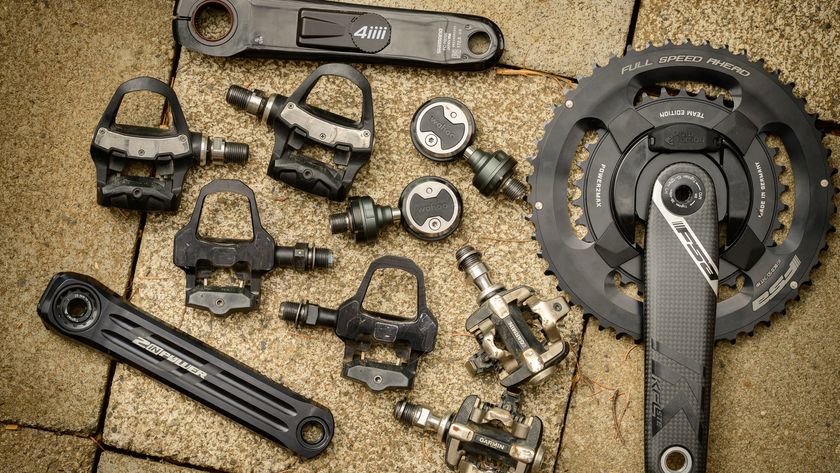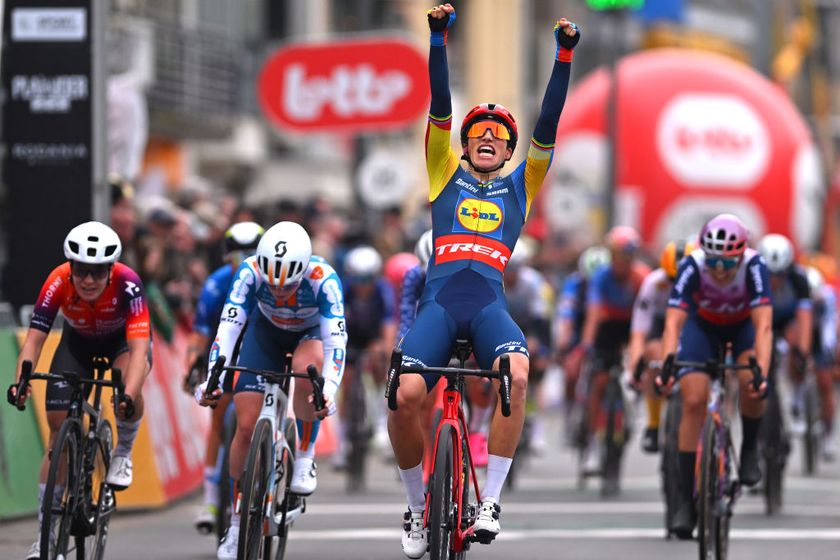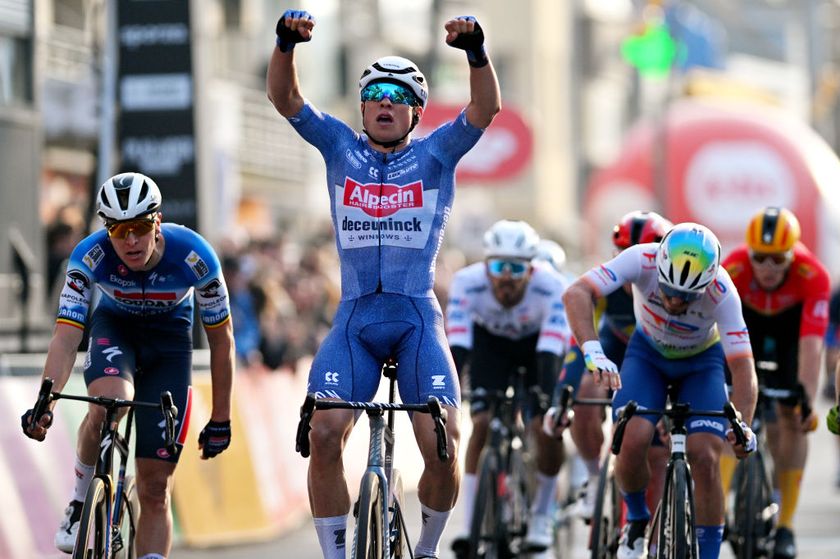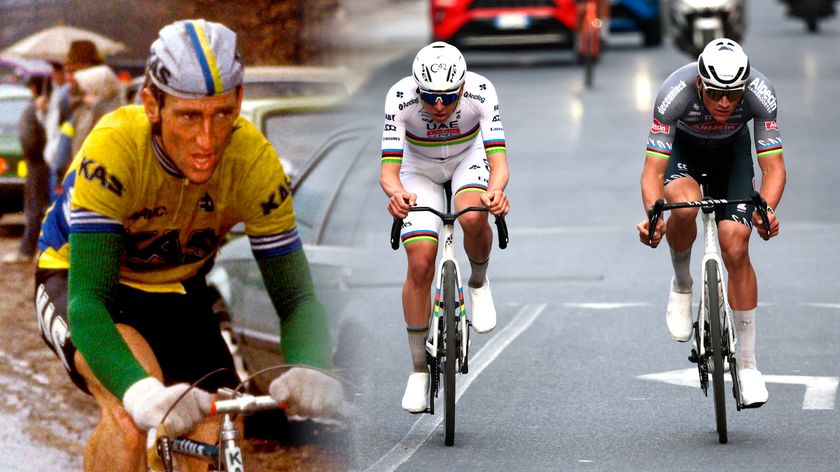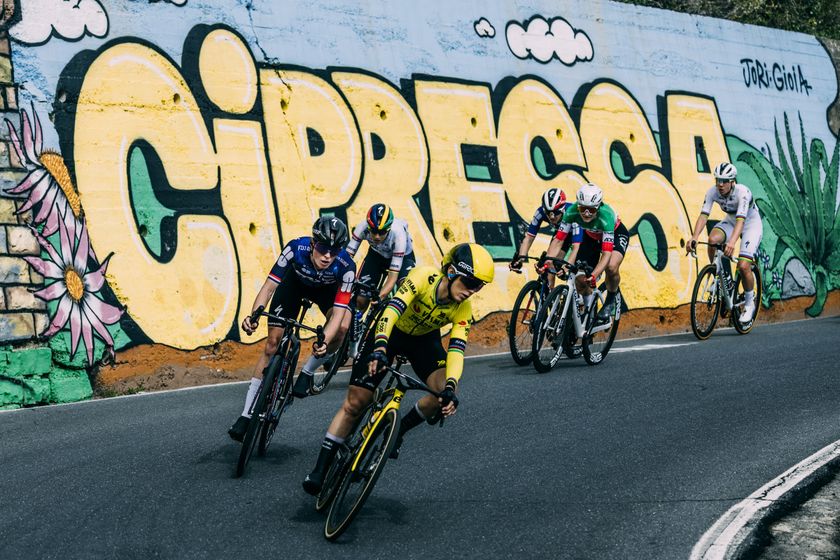Lauren Stephens: The spirit of gravel is to allow promoters to create their own rules
'I enjoy the opportunity for us all to start on the start line together' says US road race champion and gravel contender
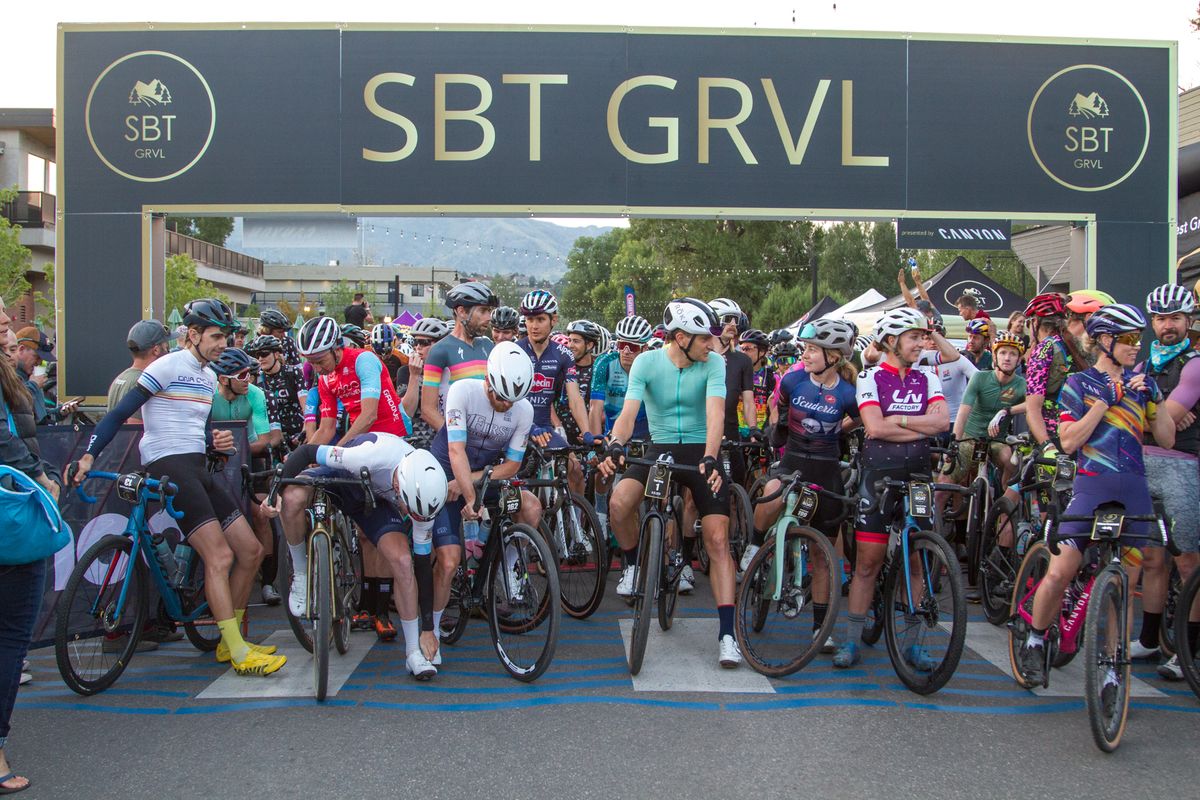
The ever-growing gravel discipline has reached an unexpected turning point, and athletes, stakeholders and event promoters may soon come together to discuss possible solutions for the future fairness of gravel racing. One key question, raised by the tactics of the Cinch team at SBT GRVL and Unbound Gravel, is whether or not men and women should compete alongside one another or as separate fields.
In an interview with Cyclingnews, US road race champion and long-time gravel competitor Lauren Stephens said that she enjoys the opportunity and the training benefits of racing in mass-start events alongside the men. However, she also believes that as the discipline grows, organisers will need to consider how best to approach and implement structured rules for their own events.
“I enjoy the opportunity for us all to start together and race together. Recently there’s been some differences of opinion on what it means to race together or to get help from other racers,” Stephens said.
“I think there will be a time where there are races where we need to be divided, for example, when you look at SBT GRVL, that offers a lot of prize money, then they probably need separate starts at that race. When you look at your local race with 100 people, however, it make sense to all start together.”
The discussion, in part, came to a head following Lauren De Crescenzo’s victories at the two biggest gravel races on the calendar - SBT GRVL and Unbound 200 - when other competitors accused her, coach Tom Danielson, and her Cinch Cycling team of breaking the ‘spirit’ of the gravel racing.
While there are no specific feeding or pacing rules at most gravel events, De Crescenzo faced allegations from fellow competitors that she was overly supported by male and female Cinch Cycling teammates. De Crescenzo denied having done anything wrong and explained how she felt about the controversy in a recent article published on Cyclingnews, Lauren De Crescenzo: You can't fake gravel racing.
Stephens did not wish to speak directly about the controversy, but she did explain that there are unwritten rules or etiquette when it comes to the levels of support that a rider receives during mass-start events.
Get The Leadout Newsletter
The latest race content, interviews, features, reviews and expert buying guides, direct to your inbox!
“We start these races together in a mass group, and there’s a difference between drafting off of someone and getting your bottles from somebody,” Stephens said.
Stephen has been drawn to gravel racing since 2012 and has won numerous events including Unbound 100 this year. She was also second behind De Crescenzo at SBT GRVL on the Black course. She said that at times, she's found herself in tricky situations while racing gravel.
“I’ve been in awkward situations where men aren’t sure if they should keep pulling, because they are just riding their race, or they don’t know what the etiquette is, and so it is also disrupting the men’s race because they are not sure what they are supposed to do,” Stephens said.
Inclusive
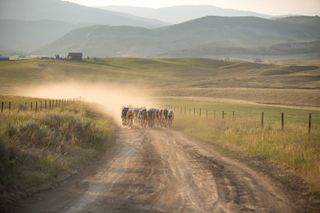
Part of the appeal of gravel racing is its inclusivity and relaxed atmosphere in which men and women of all cycling abilities toe the same start line and race the same courses and distances.
For the top-ranked women at the gravel races, oftentimes, the main strategy is to hang onto the front group for as long as possible before the race splits apart into smaller groups.
“It’s part of what gravel is because we are not at a sanctioned event. You don’t know what place you are in sometimes or how far back that next girl is, and that’s part of the excitement of not knowing where everyone is on course,” Stephens said.
“I think the real dilemma is when we are going to decide; do we want to race in a big group, men and women all starting together, or do we want to just race against our own [category]. That’s a discussion that we need to have with promoters and together.”
Stephens said that gravel racing it not just about finding the right group, pacing, tactics or technique, it’s also about figuring out your own support over distances as long as 200 miles. Unbound, for example, is a self-supported event where riders have their personal support and gear crew stationed at designated checkpoints en route.
"Providing support to a rider while on course goes against the self-sufficiency spirit of this event. It is unfair to other participants, and therefore will not be allowed," the rule states on the Unbound website.
"Gravel is about figuring out how to get your feeds, going through the feed zones, and how to survive these long distances,” Stephens said.
“When gravel first started, it was just about going to the gas station to refill your bottles and there was no support, or maybe a water cooler on a corner. There are still races like that where there’s a water cooler at a certain mile marker. It’s up to each promoter to decide what style of race they want to host.”
Building form
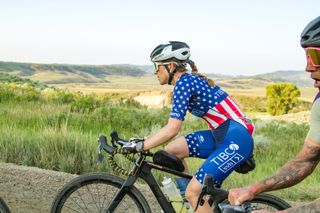
Stephens says that she benefits from racing with the men in gravel events, which helps build her form and strength ahead of the bigger road races that she competes in with the US National Team and with her trade road team TIBCO-Silicon Valley Bank.
She said racing Unbound 100 helped her prepare for her victory at USA Cycling Pro Road Championships in June, while SBT GRVL helped her prepare for her next block of racing in Europe, which will include Tour de l’Ardeche, the UCI Road World Championships and Paris-Roubaix. Upon her return this fall, she will race Big Sugar and Spirit World.
“I did my first gravel race in 2012 and I try and do more and more each year. It’s really good training to prepare me to go to Europe,” Stephens said.
“I race with the boys and I have to fight for wheels and hold position, and it’s as close as I can get to European racing when I’m in the US. That’s been my goal and how I use gravel racing, but anytime I start a race I want to win it.
“Gravel racing has been great. I won the Unbound 100 and then two weeks later won the US Championships, and so I think that helped fine-tuning for road racing. I did another big block of gravel racing that helps my road racing and so I’ve been happy with how it’s gone.”
Rules
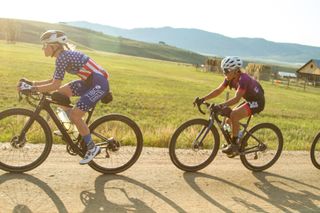
The gravel discipline could soon be under the sanctions of the UCI as the sport's governing body makes plans for a gravel world championships in the future. As such, it will attempt to establish formal governance of gravel racing and perhaps create a gravel calendar.
Even with the proposed sanctioning of some gravel events, Stephens believes it will be important for gravel racing to keep its more relaxed roots and sense of community at the unsanctioned level.
“We know it’s going to come, eventually, and it will be new and interesting to see what kind of rules are put in place and how much they keep with the spirit of gravel,” Stephens said.
“I’ll have to wait and see what they do, but I don’t think every race will become a UCI race, and there will be select events that are UCI that will be sanctioned, but it won’t change the big idea of gravel.”
Even though Stephens enjoys racing in mass-starts with the men’s field, she also explained some of the benefits for holding events where a women's category races separately from the men's category.
“One thing that I like about women’s starts is that mid-pack riders are going to enjoy racing more because it gives them more of an opportunity to race as a group longer,” said Stephens. “If we want to give opportunity to more women cycling, that would be good. I don’t think all the races need to be women’s starts, but sometimes it’s a good opportunity for women to race together.”
Until the time comes when the UCI sanctions gravel races, Stephens said promoters should be free to decide for themselves how the competing categories are divided at their events.
“Maybe that’s part of the spirit of gravel is to allow promoters to create their own rules and designing their own race. Maybe some are separated and some are together. I think that’s what people love about gravel, and they want to promote gravel, because there is a choice in how events run their race.”

Kirsten Frattini is the Deputy Editor of Cyclingnews, overseeing the global racing content plan.
Kirsten has a background in Kinesiology and Health Science. She has been involved in cycling from the community and grassroots level to professional cycling's biggest races, reporting on the WorldTour, Spring Classics, Tours de France, World Championships and Olympic Games.
She began her sports journalism career with Cyclingnews as a North American Correspondent in 2006. In 2018, Kirsten became Women's Editor – overseeing the content strategy, race coverage and growth of women's professional cycling – before becoming Deputy Editor in 2023.
